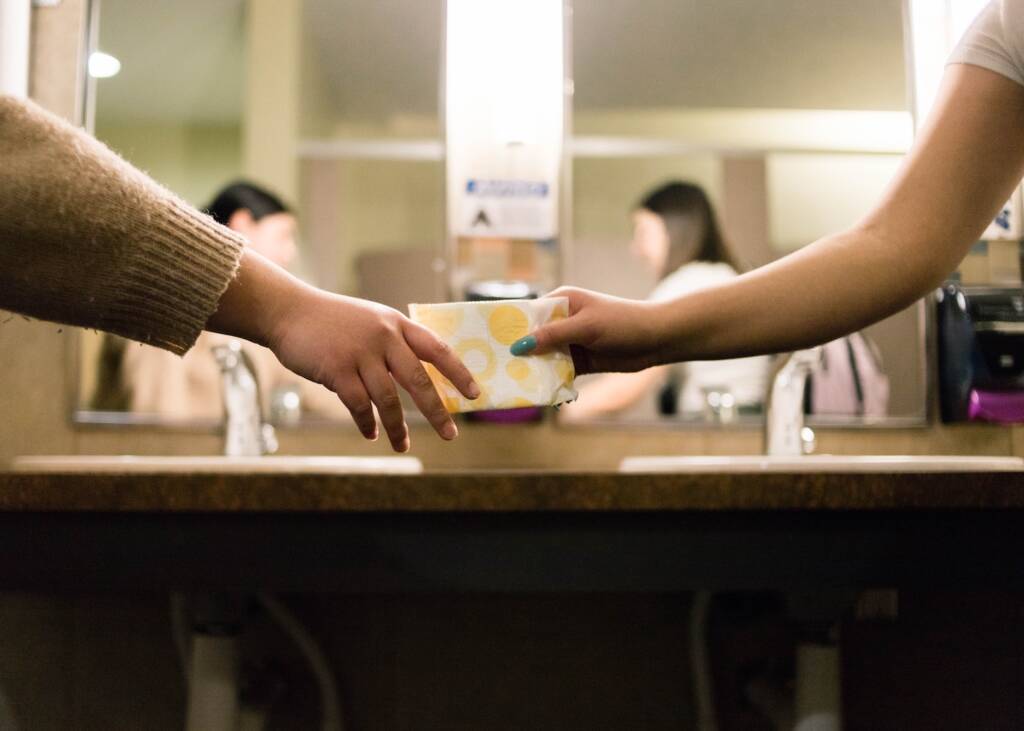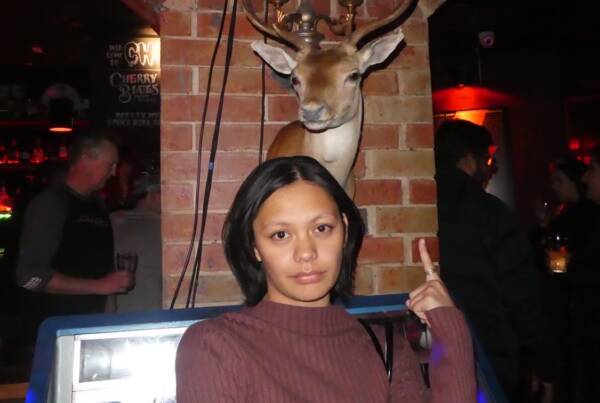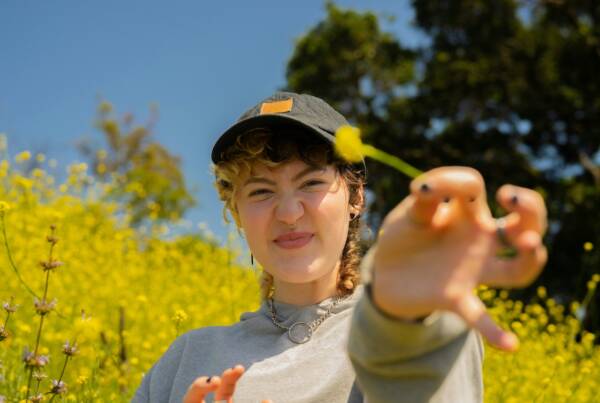Writing by Angelina Inthavong // photograph by Annika Gordon
 These days, whether it’s at a library, a concert, or a public swimming pool, we don’t second guess whether or not there will be toilet paper provided in public bathrooms. As a society we view toilet paper as a basic necessity and provide it for everyone freely. But why aren’t period products given the same treatment?
These days, whether it’s at a library, a concert, or a public swimming pool, we don’t second guess whether or not there will be toilet paper provided in public bathrooms. As a society we view toilet paper as a basic necessity and provide it for everyone freely. But why aren’t period products given the same treatment?
Nearly 50% of the population have or will menstruate during their lives. Period products are a basic necessity for girls, women, and gender diverse people who menstruate. However, Australia is in the grip of a devastating cost-of-living crisis, and young girls, women, and gender diverse people who menstruate are struggling to afford these basic necessities.
Women (and people) in Australia who menstruate spend, on average, a whopping $10,000 on period products in their lifetime – and that’s just pads and tampons. If you suffer from painful periods, PMDD, PCOS or endometriosis, that amount is even higher with added medical expenses. Imagine what a young person like me could do with that extra $10,000. I could pay off half of my HECS debt. I could even perhaps access one of the Government’s first home buyer initiatives and purchase my first home.
A new report Periods Under Pressure by Plan International Australia, for which I am a youth activist, found that 6 in 10 Gen Z and Millennials – equivalent to almost 6 million women and people who menstruate – are now finding it much harder to afford period products.
I can see this number reflected in my own and my friend’s experiences. Many young menstruators are swapping to cheaper brands of period products, changing period products less frequently endangering our health, because we’re struggling to afford these basic needs.
On any given day, around 300 million women and girls globally will have their periods. Yet, we still treat this normal biological process as ‘secret women’s business’ – and it’s something that puts girls, women, and people who menstruate all around the world at a disadvantage.
There’s an underlying rhetoric when our decision makers discuss period poverty that everyone is a cis girl, not from a culturally diverse background and without a disability. This creates additional barriers to accessing period products for people from different diverse groups.
State governments pledge to provide free period products in all state schools, while a welcome commitment, is unfortunately not even touching the top of the iceberg for demand and accessibility. For example, free period products are often placed only in girls’ bathrooms, which completely invalidates the experiences and needs of trans, non-binary, and other gender diverse folk who menstruate.
Other times when only tampons may be available, people from culturally and linguistically diverse backgrounds such as myself who were taught that tampons were invasive and ‘wrong’, may feel additional stigma and be unable to manage their period. This lack of education for many culturally diverse adolescences like me can lead to a plethora of distressing feelings and emotions.
Period poverty is an intersectional issue that needs the varied input and lived experience of diverse young people as everyone has the right to good sexual and reproductive health. It is of utmost importance that young diverse menstruators are co-designing the solutions for period poverty.
In 2021, as the Queensland Youth Health Minister, I and my peers unanimously passed a youth bill to provide free period products in all public bathrooms, demonstrating not only the need for these policies, but also that it’s legislatively possible.
Young people who menstruate have the solutions for how we can end period poverty in Australia. As part of its research, Plan International Australia asked its youth activists for the changes we think would have the most impact.
We called for things like funding for free menstrual health products in all public bathrooms, menstrual health subsidies for those from low socio-economic status backgrounds and those doing it tough and struggling the most with the rising cost of living, and information to be provided in health clinics about where to access free menstrual health products and menstrual pain treatments.
May 28th was World Menstrual Hygiene Day and as a young woman who has also experienced the disadvantage of period poverty, I believe that period products need to be viewed by society as a necessity, not a luxury.






